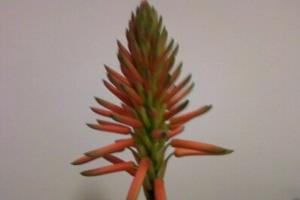Exquisite methods of keel culture in Brazil and a complete collection of pictures
Recommendations for more household plant farming
Ⅰ comprehensively explains the culture methods and techniques of Cymbidium.
Ⅱ Lubao picture, a complete collection of Lubao's breeding methods
Ⅲ duck palm wood culture methods Daquan, duck palm wood leaves off points for attention
━═☆ Home Plant area: decorate your small home and give you a green home!
In life, some people like weaker green leaves and safflower, while others like strong desert plants. The Brazilian keel looks like a very unique succulent plant, and its unique shape always reminds people of the cactus standing in the long desert, so there are still a lot of people who like it, so many people are willing to raise it. But what is the method of cultivating keels in Brazil? Next, let's take a look at the pictures of Brazilian keels and learn about the methods of keel cultivation in Brazil.
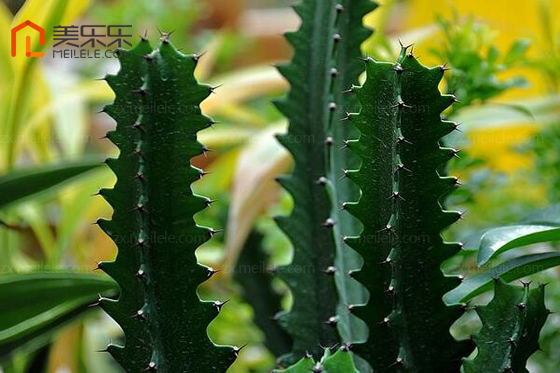
The method of keel culture in Brazil is exquisite
1. Lighting
Brazilian keels love the sun very much, so plants need to be placed in sunny places to fully receive sunlight during breeding, but the summer light is very strong and will burn the leaves of plants, so they need proper shade.
2. Temperature
Brazilian keel loves a warm growing environment, so plants need to be raised indoors in winter in the north, but the cold resistance of Brazilian keel is really not very good, even if the south can be planted in the open field, in order to prevent frost damage, we should still pay attention to keep warm.
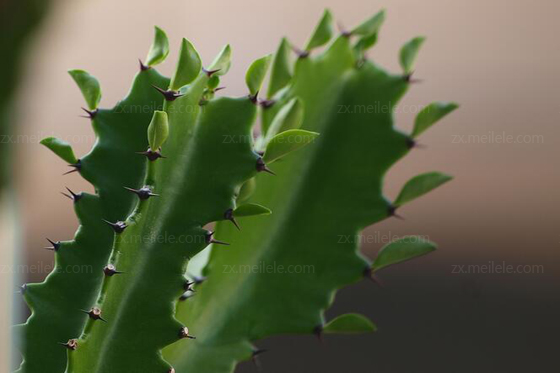
3. Watering
Brazilian keels are not drought-resistant, so daily farming requires an adequate water supply, but that doesn't mean more watering. After all, the Brazilian keel is one of the succulent plants, so it can not adapt to the situation of too much water, so watering should be controlled properly, not stagnant water.
4. Fertilization
The demand for fertilizer for Brazilian keel is not high, but basic fertilizer should be made when planting, so that some organic fertilizer should be properly added to the soil, so that suddenly there is sufficient fertility, so that you can apply a little less fertilizer at ordinary times.
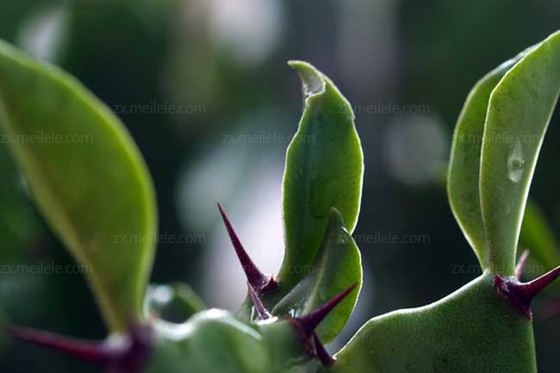
5. Soil
The adaptability of Brazilian keel is very good, so the requirement for soil is not high, so we can prepare some sandy soil with less stickiness and good drainage as cultivation soil, which is beneficial for plants to breathe freely during growth.
6. Pruning
Brazilian keel is a kind of foliage plant, so some proper pruning work needs to be done in the process of breeding. Pruning is mainly to cut off the excess branches and buds of plants and mature branches and buds, and pay attention to whether the plant leaves are withered, yellow or rotten, and so on.

Appreciation of Brazilian keel pictures
1. Picture of Brazilian keel 1
The Brazilian keel is a very unique plant. Unlike the safflower and green leaves in our usual impression, the Brazilian keel is like a group of soft girls, the only girl comparable to a man, and its body is so strong. The green leaves also have frightening jagged teeth, which makes people feel impressed at first glance. But the Brazilian keel can blossom. Whenever the flowering time comes, the Brazilian keel will bloom into small green flowers and feel particularly tender.
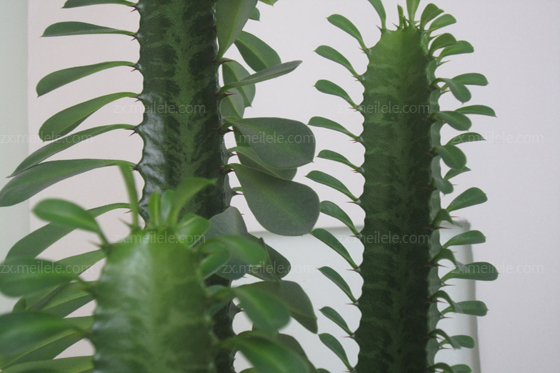
2. Picture 2 of Brazilian keel
The Brazilian keel is different from the plant we imagined. Because of its unique appearance, many people did not like it at the beginning. After all, when there is a choice, people generally do not want to put such a threatening plant at home. But after really looking closely at the Brazilian keel, we found out the real charm of the Brazilian keel. It is like an oasis in the desert giving people a glimmer of hope in a difficult predicament, making people feel slowly comfortable and very green.
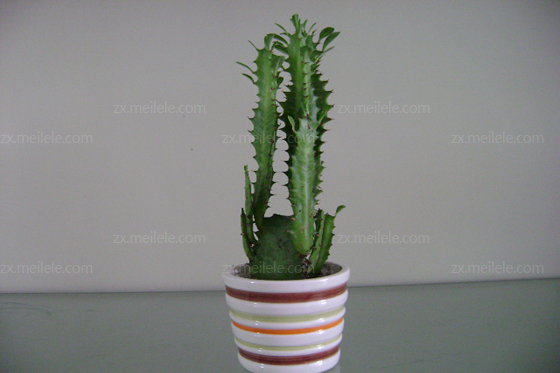
Conclusion: Brazilian keel may not be particularly loved by everyone yet, but if one day people can really look at it and touch it, you will understand the unique beauty and charm of Brazilian keel.
(note: this article is the original article of Merlot Decoration Network, reprint is prohibited without permission, if malicious reprint is found, it must be investigated by law. If you like, share more. )
[you may be interested]
☑ bedding brand ☑ Germany Marburg wallpaper ☑ liquid wallpaper brand ☑ flower language ☑ hanging orchid
☑ Taobao Cross-stitch ☑ aluminum alloy shutter ☑ formaldehyde-absorbing plant ☑ rhododendron ☑ green pineapple
It is like an oasis in the desert giving people a glimmer of hope in a difficult predicament, making people feel slowly comfortable and very green.

Conclusion: Brazilian keel may not be particularly loved by everyone yet, but if one day people can really look at it and touch it, you will understand the unique beauty and charm of Brazilian keel.
(note: this article is the original article of Merlot Decoration Network, reprint is prohibited without permission, if malicious reprint is found, it must be investigated by law. If you like, share more. )
[you may be interested]
☑ bedding brand ☑ Germany Marburg wallpaper ☑ liquid wallpaper brand ☑ flower language ☑ hanging orchid
☑ Taobao Cross-stitch ☑ aluminum alloy shutter ☑ formaldehyde-absorbing plant ☑ rhododendron ☑ green pineapple
Related
- Wuhan Hospital Iron Tree Blooming Result Was Instantly Frightened by the Gardener Master
- Which variety of camellia is the most fragrant and best? Which one do you like best?
- What is the small blue coat, the breeding methods and matters needing attention of the succulent plant
- Dormancy time and maintenance management of succulent plants during dormancy
- Minas succulent how to raise, Minas succulent plant pictures
- What are the varieties of winter succulent plants
- How to raise succulent plants in twelve rolls? let's take a look at some experience of breeding twelve rolls.
- Attention should be paid to water control for succulent plants during dormant period (winter and summer)
- Watering experience of twelve rolls of succulent plants
- Techniques for fertilizing succulent plants. An article will let you know how to fertilize succulent plants.



